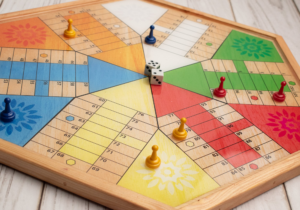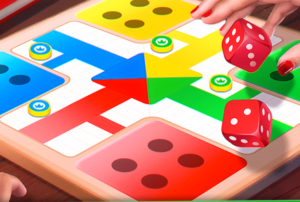Introduction
The emergence of digital gaming has given traditional board games a second life — and among the top candidates is Ludo, the classic game of strategy, chance, and a touch of drama. The online Ludo game has become a cultural bridge across distance, allowing people to reunite in real time, exchange jokes, and rediscover childhood memories – all through the swipe of a screen. But here’s the catch: as pleasant as Ludo sounds on the surface, it’s a competitive game at its core. The joy of knocking out a friend’s token, the agony of getting sent back to the start, and the urge to win at any cost may produce emotions that occasionally cross the line. When the digital board becomes a battleground, relationships may take a blow. So, how can you keep the fun alive without allowing the game to induce undesired tension? That’s where digital diplomacy kicks in – the skill of playing with heart, competing with class, and valuing friendships above triumphs. Here are seven intelligent ways to play online ludo game aggressively, but not at the price of others you care about.
How to Keep Friendships Intact While You Play Online Ludo Game Competitively
Prioritise Fun Over Winning
In the middle of a heated match, it’s easy to forget why you joined the game in the first place – to have fun with friends. Winning feels exquisite, but it shouldn’t come at the fee of someone else’s happiness. The immediate triumph becomes more crucial than laughter or connection; the essence of the sport is misplaced. Before every healthy, tell yourself: this is about spending time together, now not dominating the scoreboard. A light-hearted attitude will not only keep things pleasant but also sustain the warmth of your connections long after the game finishes.
Communicate Respectfully During the Game
Most online Ludo platforms have chat or voice functions, and although it’s easy to hurl humorous jabs or taunting remarks, it’s vital to draw the line between banter and being cruel. Words have weight, even in jest. Instead of ridiculing a player’s bad role or boasting after a successful move, keep the tone amicable. Congratulate smart techniques, laugh at shared failures, and avoid taking comments that can seem passive-aggressive. The way you speak sets the tone for the whole game – a nice remark may smooth over even the hardest takedown.
Be Mindful of Repeated Targeting
One of the simplest ways to make a great Ludo session sour is by repeatedly attacking one person while sparing others. Whether intended or not, constantly knocking the same player back to start might feel personal. Even if it makes tactical sense in the game, it’s crucial to alter your tactics and avoid singling somebody out. Remember, fairness generates harmony. If everyone feels like they’re being played against equally, the atmosphere stays light and fun — even when tokens are sent packing.
Take Breaks Between Matches
Ludo has a way of sucking you in – what starts as one game rapidly becomes a marathon of rematches. However, too much competitive strength in a brief span can create tension and cause exhaustion or dissatisfaction. Taking breaks between games helps everyone to calm off, reset their attitude, and enjoy the chat outside of the gameplay of ludo game online. Use the pause to chat, swap memes, or speak about anything irrelevant to the game. These minor resets assist in keeping the social factor that drew you together in the first place.
Learn to Laugh at Losses and Celebrate Others
One of the trademarks of excellent digital diplomacy is being a gracious loser — and a modest winner. If you lose, shrug it off and smile. If you win, don’t rub it in. Better, when your friend makes a brilliant play or wins a close game, praise them. Letting up of ego changes competitiveness into companionship. When people know they won’t be criticised, degraded, and criticised for their abilities, they all love engaging more. Ludo is most significant when it’s less about defeating someone and more about having fun while creating memories.
Don’t Make the Match a Scoreboard War
Tracking victories and losses over time could seem like a simple approach to increase excitement, but it can gently change the focus from enjoyment to competition. When every game becomes a point on a scoreboard, it’s tempting to get caught up in data rather than smiles. Friendly rivalry is healthy — even stimulating — but it shouldn’t dominate the dynamic. If your organisation keeps tallies, keep them fun and insignificant. Don’t let rankings decide who plays with whom or who gets taunted for being behind. Keep the game a game, not a prestige struggle.
Know When to Quit the Match Gracefully
Sometimes, tensions erupt even when everyone has the greatest intentions. Maybe someone’s having a rough day, or emotions flare after a particularly unfortunate move. If you notice that the tone is turning from fun to annoyance, it’s completely fair to advise terminating the session for now. Quitting while you’re still enjoying each other’s company is considerably better than prolonging a game through agony. Friendships are long-term investments – missing one match today might save a lot of embarrassment or animosity tomorrow.
Conclusion
The ludo online game may be constructed on the same principles as the classic board version, but playing it with pals in the digital environment demands a new degree of attention. Without the facial expressions, body language, and shared munchies of a dwelling room healthy, it’s less complicated for misconceptions to sneak through. That’s wherein digital diplomacy turns into important – a deliberate strategy that combines friendly competition with emotional intelligence. Remember, games are designed to bring people together, now not push them apart. Every match of online Ludo is an opportunity to generate fun, share memories, and unite over a game we all know and love. So throw your dice, move your tokens, and play to win — but always, always play with heart. Because, in the end, it’s not about who gets their tokens home first. It’s about who you still want to play with tomorrow.











